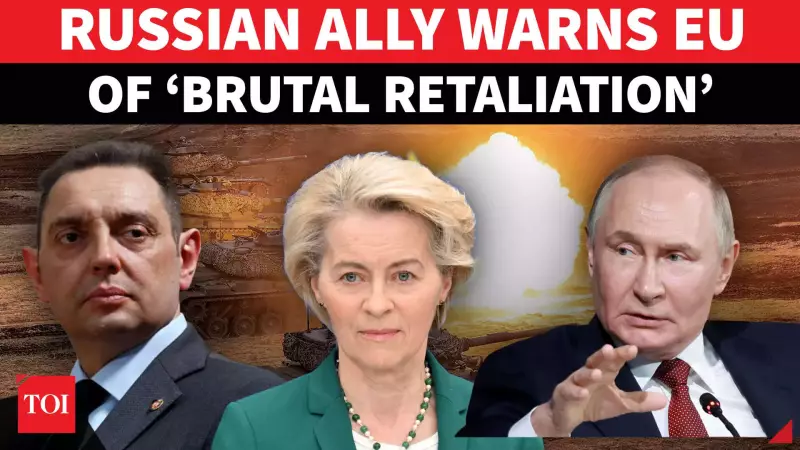
In a dramatic escalation of economic hostilities, former Russian President Dmitry Medvedev has issued a stark warning to the European Union regarding the frozen Russian assets worth billions. The high-ranking security official threatened what he described as "brutal retaliation" should Brussels move forward with plans to confiscate these funds.
'Eye for an Eye' Russian Response
Medvedev, who currently serves as deputy chairman of Russia's Security Council, didn't mince words in his social media statement. "The EU will face consequences it cannot imagine if they touch our money," he declared, emphasizing that Moscow's response would be swift and severe.
The Russian official drew historical parallels to justify potential retaliation, suggesting that Russia might seize assets belonging to European citizens and businesses operating within its territory. "It won't be just symmetrical, it will be much harsher," Medvedev warned, indicating that Moscow had already prepared countermeasures.
Billions at Stake in Economic Standoff
The confrontation centers around approximately $300 billion in Russian central bank assets that were frozen by Western nations following Moscow's invasion of Ukraine in February 2022. European officials have been debating whether to use these funds to support Ukraine's reconstruction efforts, a move that Russia considers outright theft.
Medvedev specifically targeted European Commission President Ursula von der Leyen in his remarks, accusing EU leadership of pushing policies that could trigger unprecedented economic conflict between Russia and the West.
Global Economic Implications
Financial experts are concerned that any move to permanently confiscate Russian assets could:
- Undermine confidence in Western financial systems
- Set dangerous precedents for international asset protection
- Trigger capital flight from European markets
- Accelerate de-dollarization trends globally
The threat comes at a critical juncture as Western nations struggle to maintain unity in their support for Ukraine while managing the economic consequences of prolonged sanctions against Russia.






